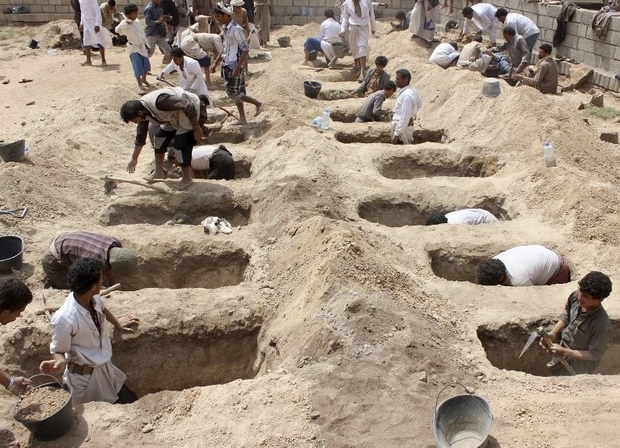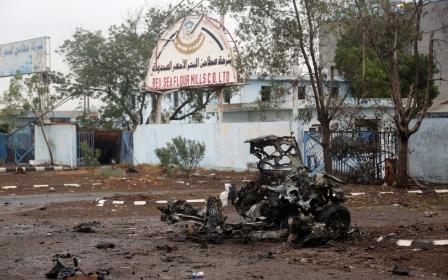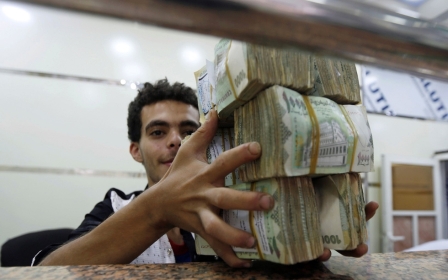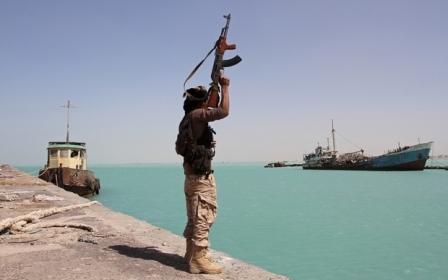Threat of famine worsens in Yemen: UN aid chief

International aid agencies are losing the fight against famine in Yemen, where 3.5 million people may soon be added to the eight million Yemenis already facing starvation, the UN aid chief warned on Friday.
A sharp drop in the value of Yemen's currency that has sent fuel prices spiraling compounded with renewed fighting has led to a worsening of what the United Nations already considers the world's worst humanitarian crisis.
"We are losing the fight against famine," Mark Lowcock, the under-secretary-general for humanitarian affairs, told the Security Council.
"We are already seeing pockets of famine-like conditions - including cases where people are eating leaves because they have no other form of sustenance," he said.
The council was meeting at Britain's request to discuss the worsening crisis in Yemen, where a Saudi-led coalition is fighting Iran-aligned rebels who control the capital Sanaa.
Lowcock said the situation had deteriorated "in an alarming way in recent weeks" and that the crisis may be approaching "a tipping point, beyond which it will be impossible to prevent massive loss of life".
The stark warning came ahead of next week's gathering of world leaders at the United Nations for the annual debate on global issues that will feature meetings on Yemen.
After a lull in fighting, Saudi-backed government forces this week launched a series of attacks on rebel-held Hodeida, the Red Sea port city that also serves as the entry point for humanitarian aid deliveries.
In late 2016, Yemen suffered from a severe cholera outbreak. More than a million suspected cases of cholera have been reported in Yemen since 2016, and more than 2,000 deaths. The United Nations says 22 million of Yemen's 25 million population need humanitarian assistance.
The fight for Hodeidah, which the Houthis seized in 2014, was put on hold for 11 weeks as the United Nations struggled to bring warring parties to peace talks in Geneva.
But the talks collapsed earlier this month after the northern Yemeni rebels refused to attend.
The Yemeni rial has lost 30 percent of its value over the past month, driving a sharp increase in the cost of food, almost of all of which is imported.
Lowcock called for council support for immediate measures to stabilize the economy, support the exchange rate and keep all ports and main roads open.
"The lifeline through which the aid operation runs now hangs by a thread," he said.
The Saudi-led alliance intervened in the Yemen conflict in 2015 in a bid to bolster embattled Yemeni President Abd Rabbuh Mansour Hadi, whose government is recognized by the UN, in his war against the Huthi rebels.
More than 10,000 people have been killed in the war. The UN estimates that thousands of children have died due to war-related disease and hunger.
New MEE newsletter: Jerusalem Dispatch
Sign up to get the latest insights and analysis on Israel-Palestine, alongside Turkey Unpacked and other MEE newsletters
Middle East Eye delivers independent and unrivalled coverage and analysis of the Middle East, North Africa and beyond. To learn more about republishing this content and the associated fees, please fill out this form. More about MEE can be found here.




